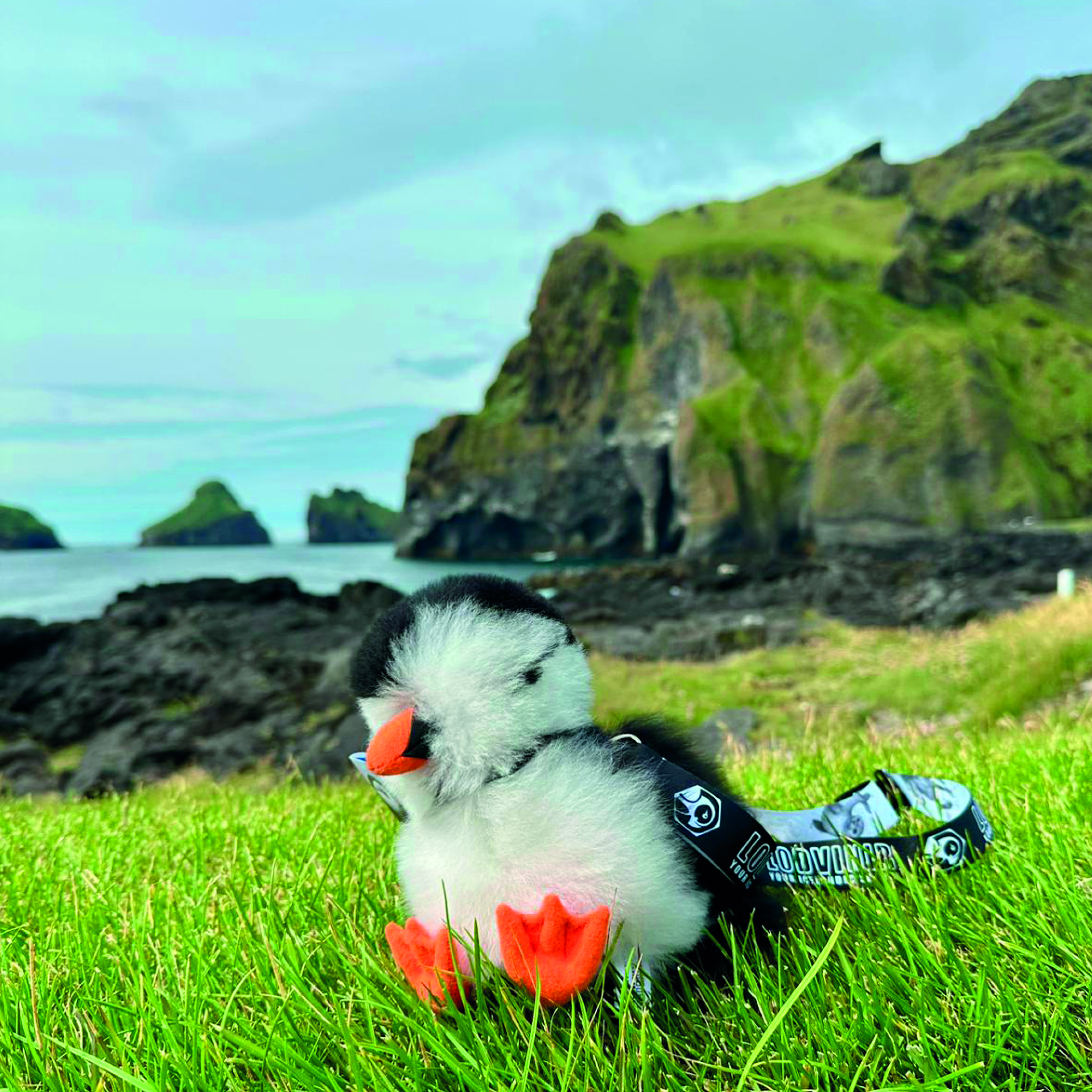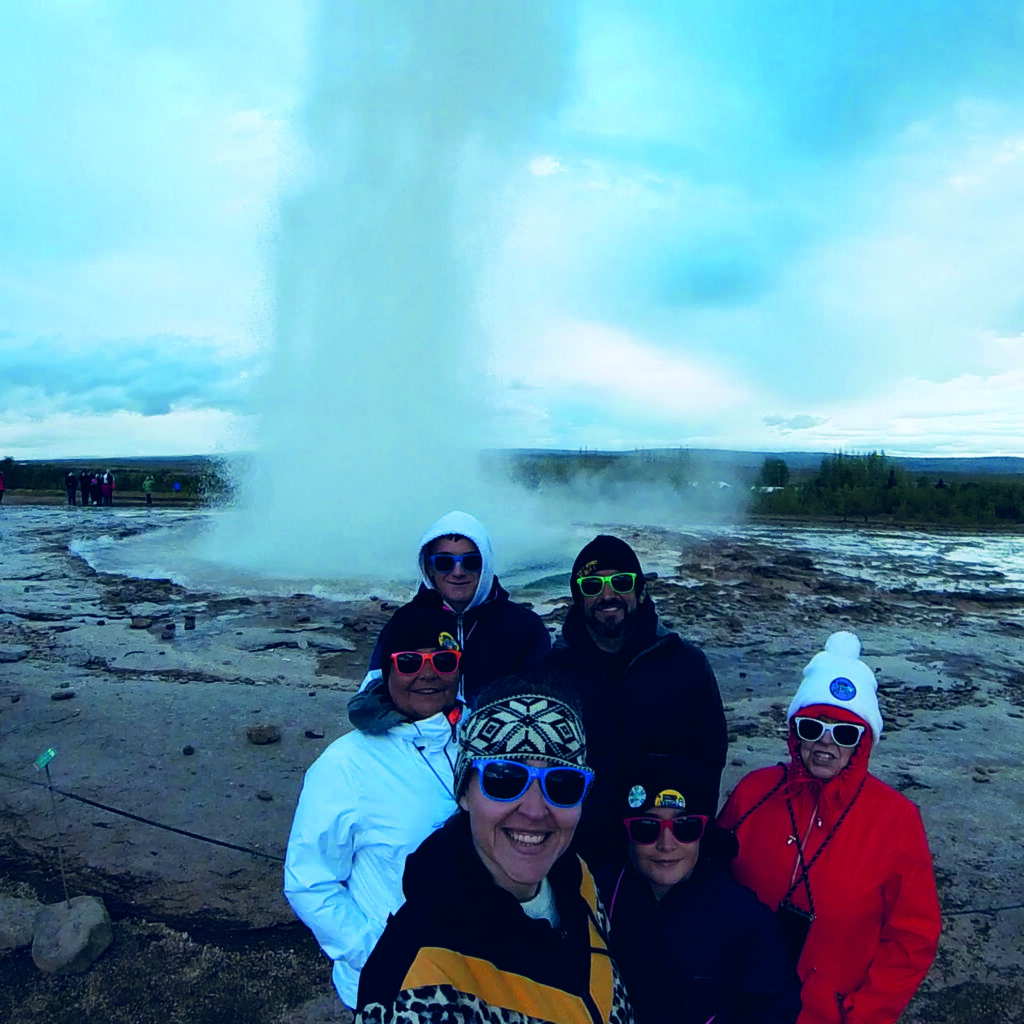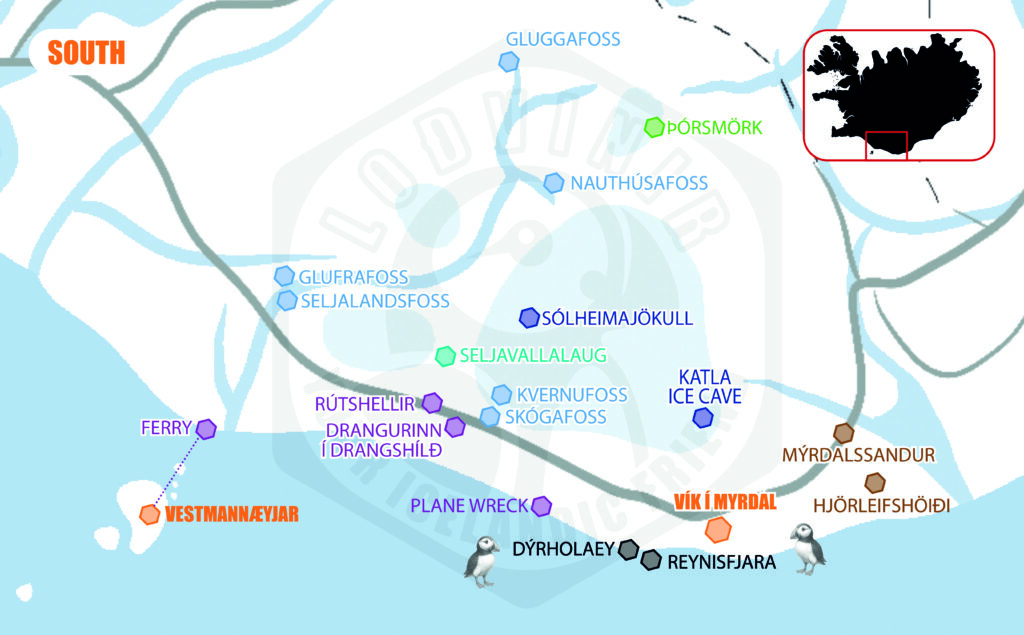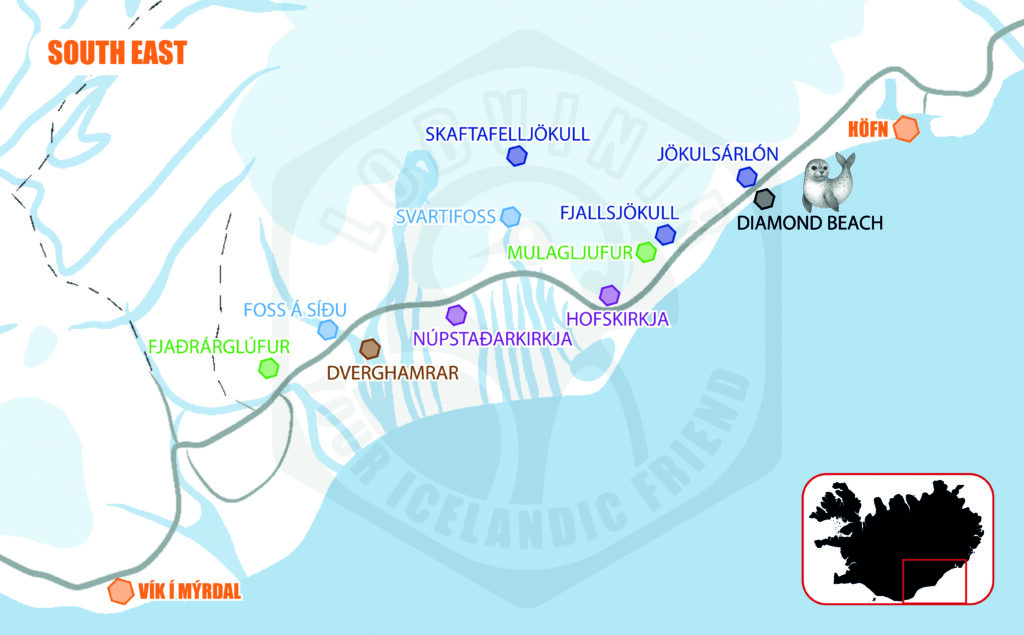
Ready to explore Iceland?
In this guide, we’ll take you through the best spots around the south-east of Iceland. Whether you’re chasing waterfalls, stunning landscapes or hidden hot springs, this is your ultimate resource to plan the perfect route.
⚠️ Important Note Before You Plan Your Route…. (Click Here)
We recommend reading our general travel guidelines before organizing your itinerary around Iceland. The weather here is unpredictable and can change rapidly, especially in winter. Some roads — even those that seem accessible on the map — may become difficult or even impassable depending on the season and conditions.
It’s also impossible to see everything in one trip, so we suggest selecting your top priorities based on the time you have available, your fitness level, and road safety updates.
Don’t underestimate driving distances either — even short routes can take longer due to road conditions, photo stops, and the sheer beauty that will tempt you to stop often!
Important to check weather and road conditions at Road.is or SafeTravel.is
Check our Travel Guide to Iceland – Essential Tips for a Perfect Trip.
THE SOUTH OF ICELAND
What to do in the South of Iceland? (Part 2/2)
From Vík í Mýrdal to Höfn
If you thought the South Coast was already impressive, wait until you venture further east. From towering glaciers and deep mossy canyons to floating icebergs and black sand deserts, this stretch between Fjaðrárgljúfur and Höfn is where Iceland shows some of its wildest and most dramatic landscapes.
Here you’ll find iconic sights like Jökulsárlón Glacier Lagoon, the surreal Diamond Beach, and hidden gems such as the lush Múlagljúfur Canyon or the quiet beauty of Fjallsárlón. Along the way, you can explore turf churches, basalt cliffs, and even soak in local hot pools while gazing at glaciers.
There’s no way to see it all in a day — so take your time, pick your favorite stops, and enjoy the journey through Iceland’s glacial frontier.
📍VÍK Í MÝRDAL VILLAGE 🏘️
Vík í Mýrdal, commonly just Vík, is a small coastal village nestled beneath steep cliffs, famous for its proximity to Reynisfjara, Reynisdrangar sea stacks, and its picturesque red-roofed church overlooking the town. It’s also the last major service stop before heading further east
- Good place to refuel, restock groceries, or stay overnight.
- We recommend a quick stop, at least, in SKOOL BEANS CAFE
📍FJAÐRÁRGLÚFUR CANYON 🗻
Fjaðrárgljúfur is a spectacular 2 km long canyon, carved by the Fjaðrá River, with sheer cliffs rising up to 100 meters. The winding shape of the canyon is one of the most photographed landscapes in Iceland.
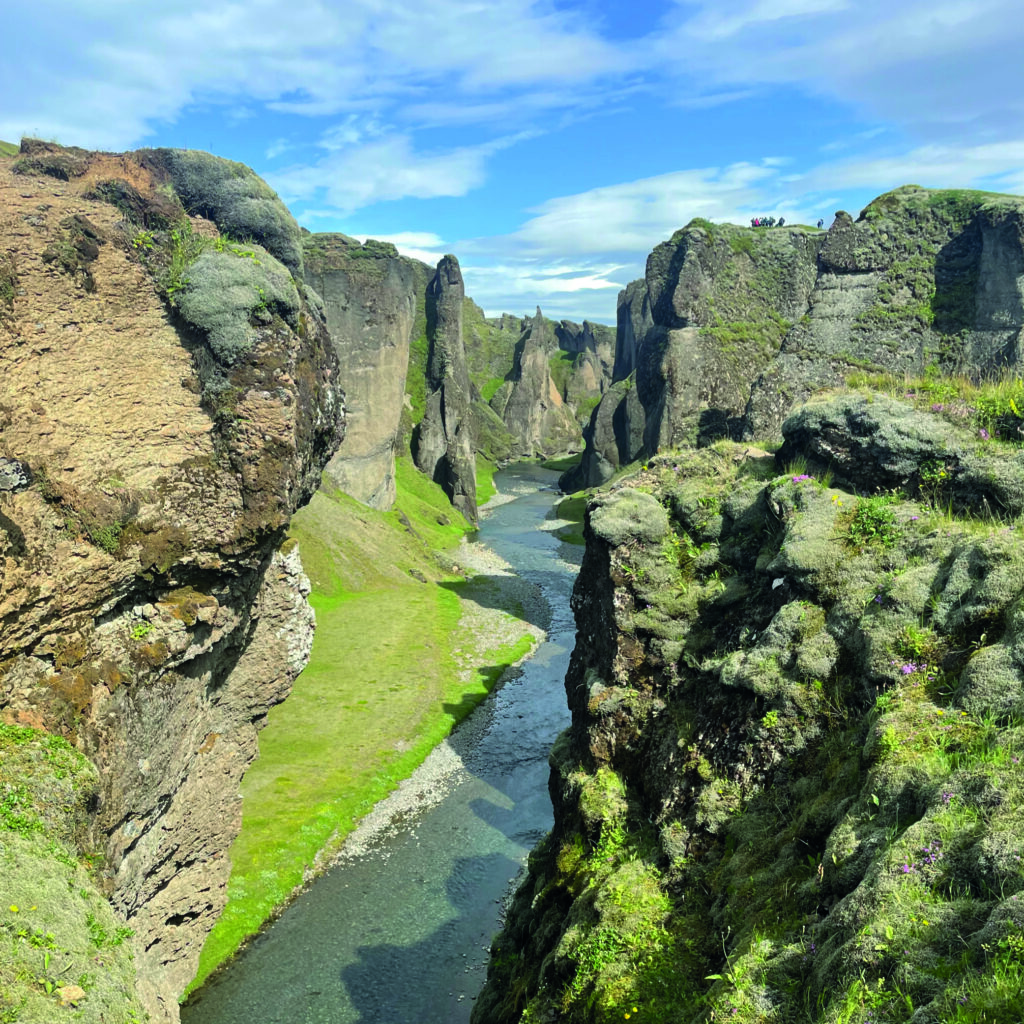
- Ecologists date it to about 9,000 years ago, shaped by glacial runoff at the end of the Ice Age.
- Minim Visit Duration: 35 – 45 min
📍FOSS Á SÍÐU WATERFALL 🌊
Foss á Síðu is a tall, narrow waterfall cascading down a cliff face by an old farm, creating a picturesque scene. The water comes from the Systravatn (Sisters’ Lake) above the cliff and falls gently down in a single drop.
- No detour needed — the waterfall is right next to Route 1.
- Minim Visit Duration: Quick picture.
- Difficulty level: Very easy – visible from road.
- Curiosities:
- The combination of the waterfall, cliffs, and farm has made it a popular postcard image of Iceland.
📍DVERGHAMRAR 🖤
Dverghamrar is a unique formation of hexagonal basalt columns, stacked like organ pipes against the hillside. These natural formations were created by rapidly cooling lava flows and are steeped in Icelandic folklore about elves and dwarfs.
- No detour needed — located just 1-2 minutes past Foss á Síðu, right next to Route 1.
- Minim Visit Duration: 10 – 20 min
- Difficulty level: Easy.
- Not crowded.
- Similar basalt formations can be seen at Reynisfjara beach and Svartifoss, but this is one of the smallest yet most charming examples.
- Recognized as a protected natural monument in Iceland.
📍NÚPSTAÐARKIRKJA – NÚPSTAÐUR TURF CHURCH 🏘️
Núpstaður Turf Church is one of Iceland’s last remaining turf churches, built in the 17th century, surrounded by turf-roofed farm buildings. Its small, rustic structure and grass-covered roof make it look like something out of a fairytale.
The church dates back to the 1600s and served the isolated Núpstaður farmstead community. It’s dedicated to the Virgin Mary, and like many turf structures, it embodies Iceland’s adaptation to harsh climates.
- Visible from Route 1, a very short detour via a small track.
- Minim Visit Duration: 5 – 10 min
- The church is usually closed inside, but the exterior is charming enough.
- Difficulty level: Very easy.
- Free. If closed, please respect and no trespassing.
- Curiosities:
- Respect the site — it’s a protected heritage location.
- It is one of only six remaining turf churches in Iceland.
- The turf buildings around the church were used as storehouses and barns, showcasing the old Icelandic way of life.
📍SKAFTAFELLSJÖKULL ❄️
📍Skaftafellsjökull is a stunning glacier tongue descending from Vatnajökull, Europe’s largest glacier. It features dramatic crevasses, icy blue and white formations, and black volcanic ash stripes, creating a surreal landscape.
The glacier has retreated significantly over the past decades due to climate change, with visible evidence of its prior reach along the trail.
- Located within Skaftafell (Vatnajökull National Park), just minutes from Route 1 and the visitor center.
- Minim Visit Duration: 1,5 h.
- WHAT YOU CAN DO:
- Hike the easy trail (~3.7 km round trip) from the Skaftafell visitor center to the glacier’s edge.
- View the glacier from safe distances — it’s not safe to walk on without a guide.
- Join guided glacier hikes offered by local operators.
- Free, but parking fee at Skaftafell visitor center.
- Difficulty level: Easy. Don’t walk on the glacier without a guide.
- Curiosities:
- Part of the Vatnajökull National Park, one of the largest protected areas in Europe.
- The glacier’s retreat marks one of the visible signs of climate change in Iceland.
📍SVARTIFOSS WATERFALL 🌊
Svartifoss is one of Iceland’s most iconic waterfalls, famous for its dark basalt columns that frame the 20-meter cascade, resembling an organ pipe formation. This striking geology has inspired architectural designs like Hallgrímskirkja Church in Reykjavík.
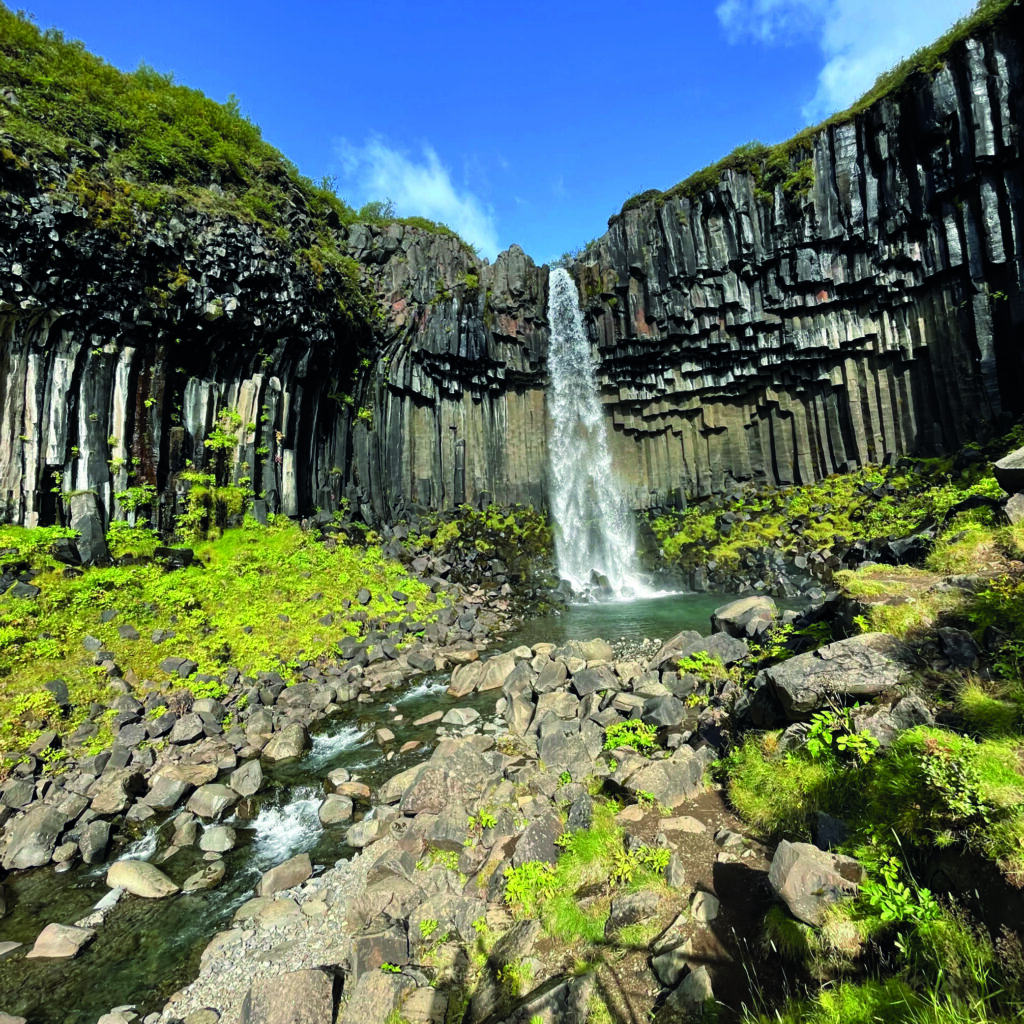
- Located within Skaftafell (Vatnajökull National Park), just minutes from Route 1.
- Hike the marked trail (1.5 km each way) from the visitor center.
- Minim Visit Duration: 1,5 – 2 h.
- Difficulty level: Moderate. Gravel paths with some inclines.
- Free, but parking fee at Skaftafell visitor center.
- There is facilities at the visitor center.
- Curiosities:
- The name means “Black Falls”, due to the basalt cliffs.
- The basalt columns formed from cooling lava, similar to formations at Reynisfjara and Dverghamrar.
📍HOFSKIRKJA TURF CHURCH 🏘️
Hofskirkja is the last turf church ever built in Iceland, completed in 1884. Surrounded by a turf-covered cemetery, the church blends seamlessly into the landscape, creating a peaceful, almost mystical setting.
Built in the traditional Icelandic style, with turf walls and a timber frame, Hofskirkja was constructed by Páll Pálsson, a renowned craftsman. It is still consecrated and occasionally used for services.
- No detour needed, just off Route 1.
- Minim Visit Duration: 5 – 10 min
- The interior is usually closed, but the exterior and graveyard are accessible.
- Difficulty level: Very easy.
- Curiosities:
- One of only six turf churches left in Iceland.
- The graveyard’s rounded turf mounds give the site a unique, almost fantasy-like appearance.
- Be respectful — this is a functioning religious site.
📍MÚLAGLJÚFUR CANYON (4×4) 🗻
Múlagljúfur Canyon is a hidden gem, a spectacular and steep gorge with towering cliffs, lush moss, and multiple waterfalls including Hangandifoss. A moderate hike leads to jaw-dropping viewpoints overlooking the canyon and distant glaciers.
- Short but poorly marked gravel track off Route 1, between Fjallsárlón and Jökulsárlón.
- A 4×4 vehicle is advisable to access the trailhead.
- Check always the situation of the roads in Safetravel.is or Road.is.
- Difficulty level: Moderate.
- Not recommended in winter or poor weather.
- Minim Visit Duration: About 2-3 hours
- Curiosities:
- The name means “Múla Gorge” — referring to the nearby mountain ridge. It remains one of the less discovered natural wonders of the area.
- Múlagljúfur is often compared to Fjaðrárgljúfur, but steeper, more remote, and wilder.
- Still relatively unknown, so you may have the place to yourself!
📍FJALLSJÖKULL ❄️
Fjallsjökull is another glacier tongue of Vatnajökull, terminating in the Fjallsárlón glacial lagoon, a smaller and quieter alternative to Jökulsárlón. Here, icebergs float on the lagoon with the glacier directly in the background, creating a serene and impressive scene.
- Short detour of about 2 km off Route 1.
- The area is quieter and less touristy compared to Jökulsárlón.
- Minim Visit Duration: 30 – 60 min (1,5 -2 hours if boat tour).
- Boat tours are seasonal. Aprox 9-13.000 isk.
- Difficulty level: Easy.
- Curiosities:
- Fjallsjökull sits beneath Öræfajökull volcano, Iceland’s highest peak.
- Fjallsárlón is sometimes referred to as “the little brother of Jökulsárlón” but feels more intimate and wild.
📍JÖKULSÁRLÓN GLACIER LAGOON ❄️
Jökulsárlón is Iceland’s most famous glacial lagoon, where massive icebergs drift from Breiðamerkurjökull glacier and float towards the sea. The ever-changing ice formations, blue waters, and nearby wildlife make it an unforgettable sight.
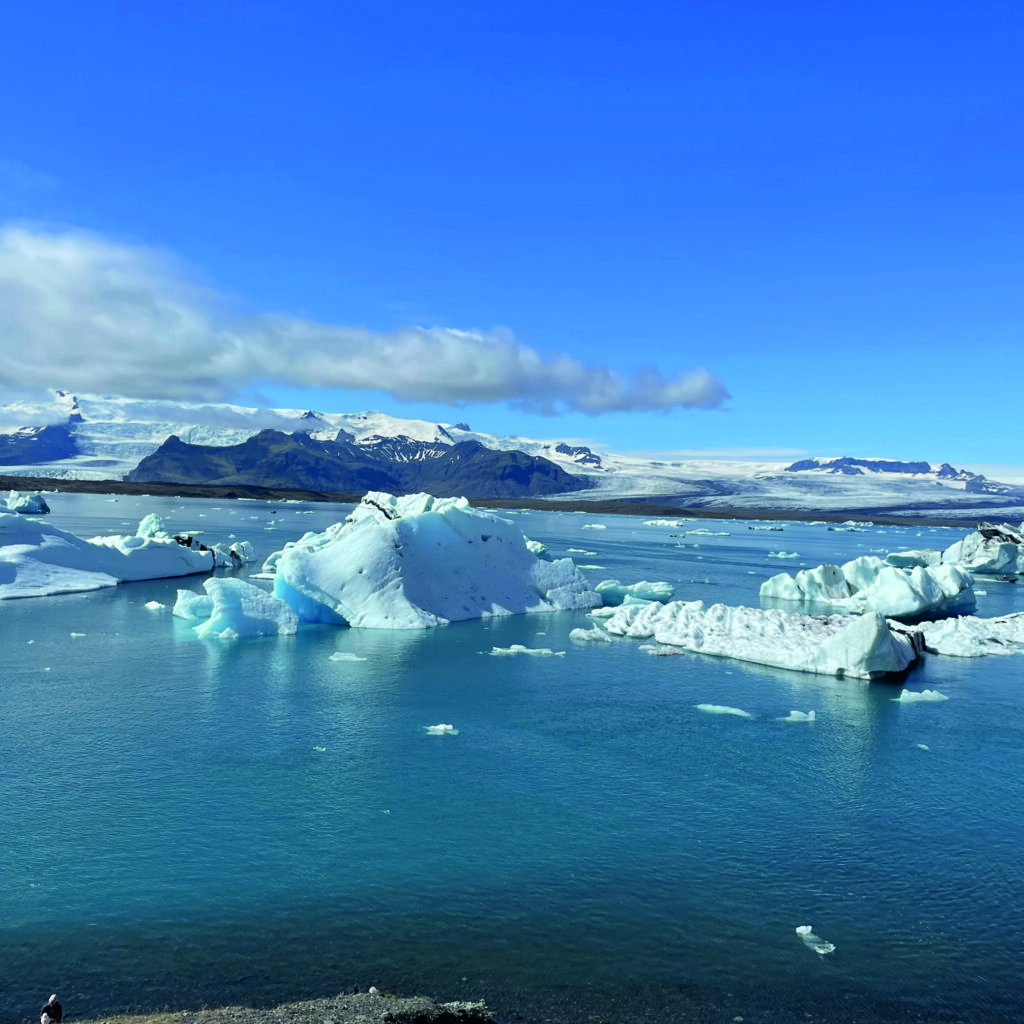
- The lagoon began forming in the 1930s due to glacial retreat, and it’s now Iceland’s deepest lake (~248 meters).
- No detour needed — the lagoon is right by Route 1
- Spot seals swimming among the ice.
- Difficulty level: Very easy, access from the parking area.
- Minim Visit Duration: 45 min
- Free, Small parking fee.
- Possibility to book activities like kayak or boat tour (7 – 15.000 isk)
- Curiosities:
- Featured in movies like James Bond’s “Die Another Day”, Tomb Raider, and Batman Begins.
- The lagoon connects directly to the sea — a rare phenomenon globally.
📍DIAMOND BEACH 🖤❄️
Diamond Beach is a black sand beach where icebergs from Jökulsárlón wash up on shore, creating a surreal landscape of glittering ice chunks on black sands. The contrast between the clear or blue ice and the volcanic sand gives the beach its name.
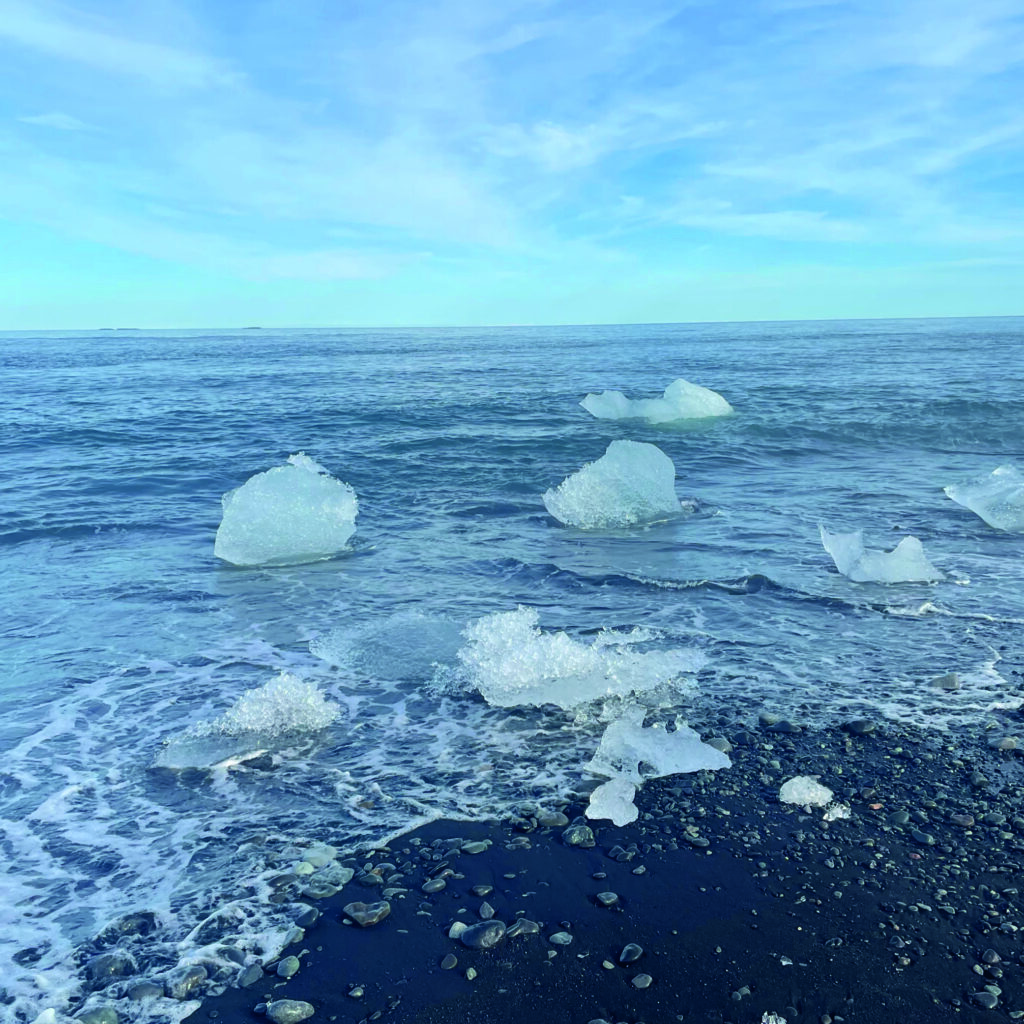
Naturally formed by the constant movement of icebergs drifting to sea, there are no specific legends, but its unique setting has earned it global fame.
- No detour needed — parking is just across Route 1 from Jökulsárlón.
- Often seals swimming near the shore.
- Difficulty level: Very easy, access from the parking area.
- Minim Visit Duration: 20 – 30 min
- Free, but small parking fee.
- Curiosities:
- The beach is constantly changing — no two visits look the same!
- Sometimes you’ll find the beach covered in ice chunks, other times almost none — it all depends on the tides and iceberg flow that day.
- The beach is constantly changing — no two visits look the same!
📍HÖFN 🏘️
Höfn is a charming coastal fishing town, known as the lobster capital of Iceland. Surrounded by sea, mountains, and glaciers, Höfn offers stunning views of Vatnajökull glacier and is the last major hub before entering the Eastfjords.
The town developed thanks to fishing and the natural harbor, which is what “Höfn” means — “harbor” in Icelandic.
- Curiosities:
- Höfn hosts an annual Lobster Festival (Humarhátíð) every summer.
Where to Take a Bath in the South of Iceland?
SOON WE WILL POST A MAP WITH ALL THE PLACES WHERE YOU CAN RELAX AND ENJOY IN THE WATER IN ICELAND.
But meanwhile, here you have a list with some suggestions on the area:
- KIRKJUBÆJARKLAUSTUR SWIMMING POOL (Kirkjubæjarklaustur) 💵
- HOFFELL HOT TUBS (Höfn) 💵
- SUNDLAUG HAFNAR SWIMMING POOL (Höfn) 💵
Discover More About Iceland
Travel Guide to Iceland – Essential Tips for a Perfect Trip
Discover Iceland with your LOÐVINIR Friends!
ICELAND GUIDE: SOUTH EAST (FROM VÍK TO HÖFN)
ICELAND GUIDE: SOUTH (FROM SELFOSS TO VÍK)
Handmade. Natural materials. Hypoallergenic.
Adopt an Icelandic Puffin Plush – The Perfect Souvenir
Soft. Eco-friendly. Designed in Iceland.
Helps support Icelandic wildlife conservation.
